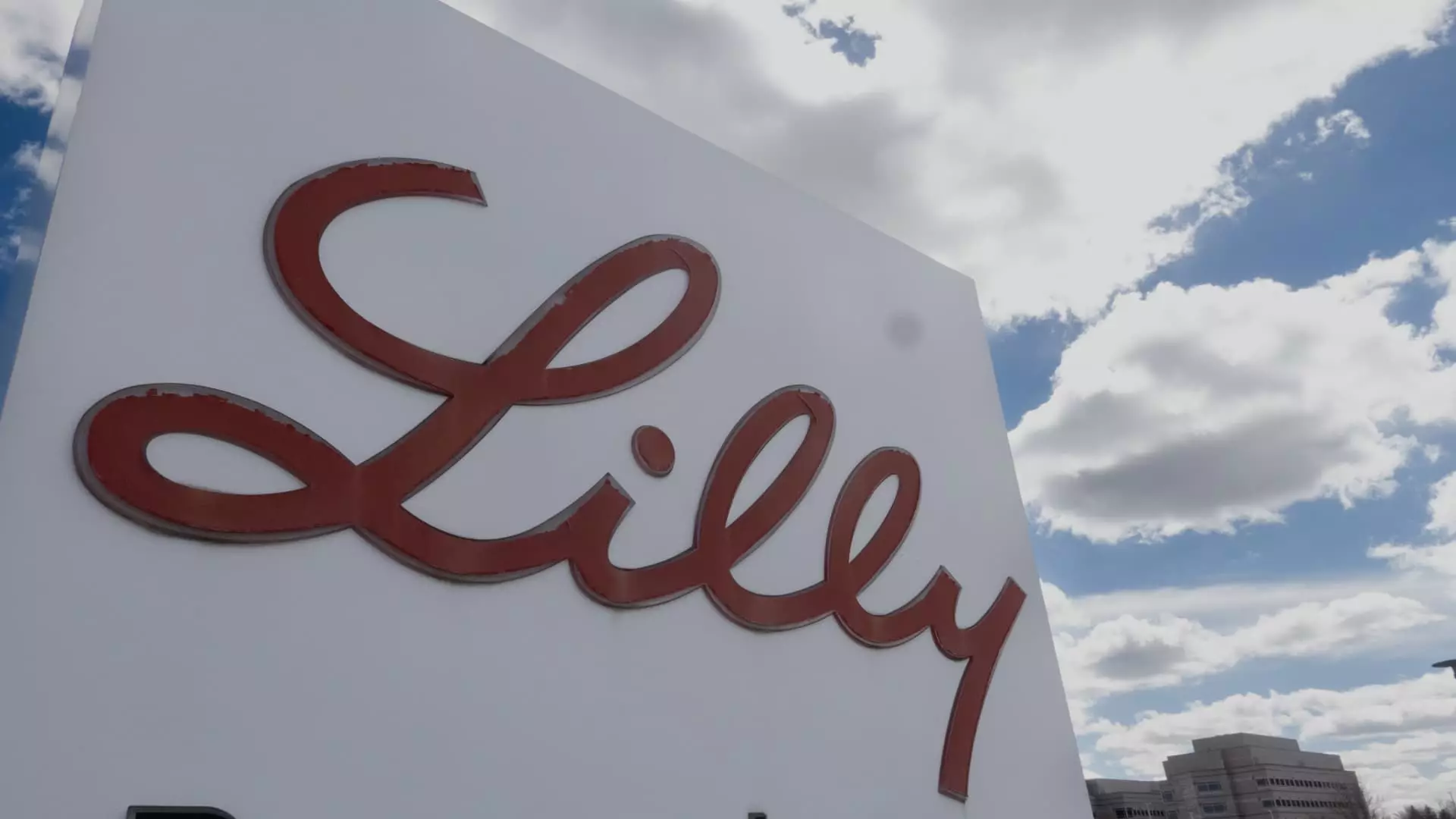In an ambitious move that underscores its commitment to innovation in the pharmaceutical sector, Eli Lilly has announced a staggering investment of $4.5 billion to construct the Lilly Medicine Foundry. This facility aims to revolutionize the way the company produces its medications, focusing on efficiency and cutting-edge manufacturing techniques. Situated near an extensive nine-billion-dollar manufacturing complex in Lebanon, Indiana, the foundry is expected to commence operations in late 2027, heralding a new era for Lilly’s production capabilities.
The concept behind the Lilly Medicine Foundry is groundbreaking. It will serve as both a research and development site, and a production facility for drugs intended for clinical trials. David Ricks, Eli Lilly’s Chief Executive Officer, articulated the vision for this endeavor: transforming molecular compounds from laboratory settings directly to pharmacy shelves. By integrating research with production processes at a single site, Lilly intends to streamline the transition from idea to market-ready medicine, marking a significant departure from traditional pharmaceutical practices.
This innovative approach is not merely theoretical; it builds on Lilly’s recent successes with drugs like Mounjaro and Zepbound, both of which have emerged as market leaders in weight management solutions. Their popularity has not only elevated Lilly’s status in the pharmaceutical landscape but has also revealed the immense opportunity for further growth. The promise of these drugs – projected to generate $50 billion in revenues by 2028 – provides a solid financial foundation upon which Lilly can expand its research into additional therapeutic areas.
While obesity treatment remains a key focus area, Eli Lilly has clear ambitions to diversify its portfolio, venturing into the realms of Alzheimer’s disease and other neurodegenerative disorders. In discussing these goals, Dr. Dan Skovronsky, the company’s chief scientific officer, emphasized the plethora of opportunities that remain unexplored. The market dynamics indicate a growing interest in Alzheimer’s and similar conditions, leading other pharmaceutical companies to pivot their focus in pursuit of competitive parity with Lilly.
In an industry often characterized by imitation, Dr. Skovronsky’s acknowledgment of Lilly’s forward-thinking strategy, “we’re working on the next thing,” positions the company as a leader in not just current markets but future domains as well. Neuroscience, specifically, stands out as a priority area for Lilly. With historical involvement through well-known drugs like Prozac and their recently approved Alzheimer’s therapy, Kisunla, the company recognizes the urgent need for advancements in this critical sector.
Lilly’s focus on neuroscience is driven by a sense of urgency around unmet health needs, such as addiction and mental health issues that sit alongside neurodegenerative conditions. David Ricks reiterated this perspective, noting the critical demand for solutions in these domains. The company’s strategic investment in research and development aims not only to meet current health challenges but to uncover novel therapeutic approaches to complex diseases.
Interestingly, while Lilly is expanding its focus beyond obesity, it remains unwavering in its commitment to developing obesity medications. Ricks highlighted the company’s current developmental pipeline, boasting 11 obesity drugs that leverage various mechanisms of action. This underscores Lilly’s belief that a diversified approach to drug development is essential for catering to the varied needs of patients.
Eli Lilly’s aggressive strategy also points toward its aspiration of becoming the world’s first trillion-dollar healthcare company. With a remarkable 65% surge in stock value over the past year, Lilly’s market capitalization now stands at around $840 billion. While Ricks does not consider the trillion-dollar mark to be an explicit goal, the underlying message remains clear: Lilly is poised for unprecedented growth, fueled by innovation and a commitment to creating value through impactful healthcare solutions.
As the pharmaceutical industry continues to evolve, Eli Lilly’s proactive approach sets a precedent for how companies can strategically align research and production. The Lilly Medicine Foundry is not just a facility; it represents a cultural shift toward a more integrated, innovative landscape in healthcare. With its sights firmly set on tackling significant health challenges head-on, Lilly is not merely keeping pace with industry trends; it is actively shaping the future of medicine.

